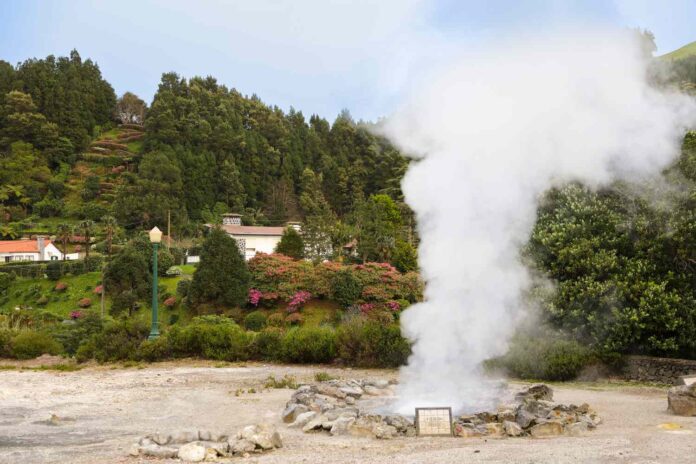:max_bytes(150000):strip_icc():format(jpeg)/TAL-plum-steam-azore-ACCESSIBLETRAVEL0724-af960ce7a9a346058dbbe49ccea76341.jpg)
As we trekked through the dense, lush forest surrounding Lagoa do Congro, the volcanic crater lake on the Portuguese island of São Miguel, I watched my family navigate the challenging terrain. My kids, ages five and 10, darted ahead with the agility of gazelles while my mom cautiously relied on her walking stick and my dad’s arm to guide her every step. The trail was slick, and I wondered, not for the first time, if I had failed in my planning by choosing this trek.
In her mid-40s, my mom was diagnosed with early-onset Parkinson’s disease, and in the decades since, we have all learned how to adapt to her changing body. Yet travel planning remains daunting for us — and for many other families like ours.
After the hike, my mom candidly shared her insights with me. I expected her to say something about the trail. Instead, she surprised me by saying that, for her, the most difficult aspect of traveling isn’t the physical. “The most draining thing is navigating the unknowns,” she said, mentioning the slippery tiles in our hotel bathroom. “I can decide to go with you and the kids on the hike,” she explained, “but navigating the hotel room is unavoidable.”
From left: Courtesy of Visit Pensacola; Christine Chitnis
It was a good reminder that solid planning starts with getting the basics right.
Fortunately, there’s a growing number of resources that families can call on. One starting point is Wheel the World. The online platform publishes detailed accessibility information — whether bathrooms have grab bars, or if surfaces are wheelchair-friendly — that’s verified by volunteers, covering hundreds of hotels and vacation rentals as well as sightseeing tours. (The site was recently recognized by T+L as a Global Vision Award winner.)
Meanwhile, some hotels and destinations are leaning in. Beaches Resorts, for example, operates the Caribbean’s first independently certified, autism-friendly kids’ clubs. “For families with neurodivergent travelers, what may seem like a simple travel decision can shape the entire course of their vacation,” says Heather Effs, of Sandals Resorts International, which runs Beaches. “We give families an opportunity to speak with a dedicated team member and share any special needs.”
In Florida, Pensacola is one of several beach destinations that has invested in wheelchair-friendly Mobi-Mats to facilitate mobility on the sand. Visit Florida, the state’s tourism authority, keeps a running list of others, which include Amelia Island and Key Biscayne.
Kelly Dawson, a disability activist, says that no matter the destination, it’s important that families communicate specific needs and preferences beforehand. “You can’t plan for everything,” says Dawson, who has cerebral palsy. “But it’s easier to talk about vulnerable subjects if everyone is there to listen and learn.” She adds that if some family members feel uncomfortable discussing their needs or the needs of a loved one, asking for a short list of “must haves” and “must avoids” can help jump-start the conversation.
A version of this story first appeared in the July 2024 issue of Travel + Leisure under the headline “Adventures for All.”



